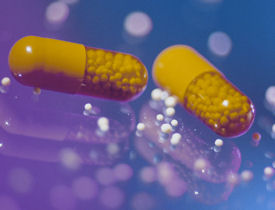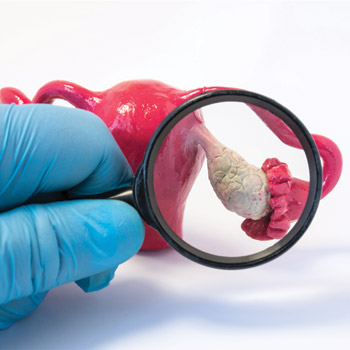New warning on SGLT2 inhibitors, REMS approved
This column reviews details on recent recalls, warnings, and approvals.
Recalls, market withdrawals, and warnings
A warning about cases of a rare, serious infection of the genitals and surrounding area in patients taking sodium-glucose cotransporter-2 (SGLT2) inhibitors. From March 2013 to May 2018, the agency identified 12 cases of the infection, called necrotizing fasciitis of the perineum or Fournier's gangrene, in seven men and five women within several months of the patients starting an SGLT2 inhibitor. All 12 patients were hospitalized and required surgery, some developed complications, and one died. A new warning about this risk will be added to the prescribing information of all SGLT2 inhibitors, as well as to the patient medication guide.

A recall involving a field correction of about 5,223 Maquet/Getinge Cardiosave intra-aortic balloon pumps due to issues at high altitudes. Patients who are at altitudes above 3,200 feet (975 m) may experience interruption and/or inability to start therapy, potentially leading to hemodynamic instability. The company is developing a software connection to address the issue and anticipates that installation will begin in February 2019.
An expanded recall of valsartan/amlodipine/hydrochlorothiazide, valsartan/amlodipine, and valsartan tablets by Torrent Pharmaceuticals Limited due to trace amounts of the impurity and probable human carcinogen N-nitrosodimethylamine. The recall now includes all lots of these unexpired products.
A class I recall of replacement cushion seals for the Probasics Brand Zzz-Mask SG Full Face CPAP Mask by Compass Health due to possible air leaks. The mask is designed for patients who need continuous positive airway pressure (CPAP) for the treatment of obstructive sleep apnea in the home. A design change to the cushion seal and accompanying elbow replacement parts could result in an air leak that interrupts therapy if used with the previous design of the mask. The recall includes 742 replacement cushion seals distributed from May 4, 2015, to Oct. 10, 2017.
A recall of one lot of montelukast sodium tablets (10 mg, 30-count bottles) by Camber Pharmaceuticals, Inc. due to an incorrect drug in the bottles. Bottles in the affected lot contained 90 tablets of losartan potassium tablets (50 mg).
A recall of one lot of hydrochlorothiazide tablets USP (12.5 mg) due to a labeling mix-up. A pharmacy reported that a 100-count bottle in the lot contained 100 spironolactone tablets USP (25 mg).
A recall of one lot of CVS Health 12 Hour Sinus Relief Nasal Mist by Product Quest Manufacturing due to microbial contamination identified as Pseudomonas aeruginosa. The manufacturer has expanded the recall to include all lots of nasal products and baby oral gels within expiry that were manufactured at its Florida facility.
A class I recall of seven lots of the Tri-Flo Subglottic Suction System by Vyaire Medical, Inc. due to risk of device breakage. There is a risk that the distal soft tip of the catheter may break off and enter the patient's lungs. The recall includes 2,150 units distributed from Jan. 23 to May 23, 2018.
A global market withdrawal of all versions of the CyPass Micro-Stent by Alcon due to safety concerns. The device was approved in 2016 to treat adults with glaucoma in conjunction with cataract surgery. The market withdrawal was based on data from a long-term safety study, which showed that patients who received the device had significantly more endothelial cell loss than patients who had cataract surgery alone.
A class I recall of all lots of VITEK 2 gram-positive antimicrobial susceptibility testing cards with oxacillin and cefoxitin tests by bioMérieux due to false results for some strains of methicillin-resistant Staphylococcus aureus. The recall includes nearly 14 million devices manufactured and distributed since Feb. 8, 2017.
A recall of all sterile drug products compounded by Pharm D Solutions, LLC due to a lack of sterility assurance. A routine FDA inspection raised concerns that practices at the pharmacy may pose a risk of contamination. The recall includes all compounded sterile drug products dispensed from September 2017 through September 2018.
A recall of 10 lots of the Leukotrap RC System with RC2D Filter by Haemonetics Corporation due to reports of higher-than-expected residual white blood counts. The company has identified that the issue arises from a manufacturing assembly issue related to a single lot of the filters. Affected products were distributed between April and July 2018.
Miscellaneous
Final approval of the opioid analgesic Risk Evaluation and Mitigation Strategy (REMS). For the first time, the expanded REMS applies to immediate-release opioid analgesics intended for use in the outpatient setting. Extended-release and long-acting opioid analgesics have been subject to the REMS since 2012. The REMS program also requires training to be available for all clinicians involved in pain management, not only for prescribers.
Placement of Zhejiang Huahai Pharmaceuticals on import alert, preventing the company's drug products from legally entering the U.S. Batches of valsartan made by the manufacturer were recalled due to trace amounts of N-nitrosodimethylamine, a probable human carcinogen. The company is investigating how impurities entered its active pharmaceutical ingredients and is remediating its quality systems.
The addition of four new diseases to the tropical disease priority review voucher program. Lassa fever, chikungunya virus disease, rabies, and cryptococcal meningitis are now on the list of eligible tropical diseases as part of the program.
Recommendations supporting the transition to enteral devices with connectors that meet specific standards to reduce the risk of misconnections. Clinicians should use enteral devices that meet the International Organization for Standardization 80369-1 or ISO 80369-3 standard, although there are no enteral connectors on the market that meet the latter standard.
Warning letters sent to vendors Chillin Mix Kratom and Mitra Distributing for marketing kratom products with scientifically unsubstantiated claims. Claims include that kratom relieves opium withdrawals and treats myriad ailments. The FDA maintains there is no adequate clinical evidence that using kratom can treat opioid use withdrawal or other diseases.
Approvals
Buprenorphine and naloxone sublingual film (Cassipa) for the maintenance treatment of opioid dependence. The approval provides a new dosage strength of buprenorphine and naloxone (16 mg/4 mg), which is also approved in generic and brand-name versions and in various strengths.
The PK Papyrus Covered Coronary Stent System to treat acute coronary artery perforations, which can occur during percutaneous coronary intervention (PCI). The device, the first approved for this indication in 17 years, received approval through the FDA's humanitarian device exemption process, as the condition affects 8,000 or fewer individuals in the U.S. each year. Survey data of 80 patients who received the stents showed that 95% had successful deliveries of the stents to the perforation site and that the device successfully sealed perforations in 91.3%. Two patients died during the PCI procedure, and seven patients were treated to drain fluid collection around the heart. Post-procedure, in-hospital death occurred in five patients whose perforations were sealed by the stents and in one patient whose perforation was not sealed. The system is contraindicated in patients who are not considered candidates for standard PCI procedures and in those with allergies or hypersensitivity to compounds of the stent.
Moxetumomab pasudotox-tdfk intravenous injection (Lumoxiti) to treat certain adults with relapsed or refractory hairy cell leukemia. The orphan drug, a CD22-directed cytotoxin, is indicated for patients with the rare blood cancer who have received at least two prior systemic therapies, including treatment with a purine nucleoside analog. In a single-arm trial of 80 patients, 30% achieved a durable complete response to therapy, and 75% achieved a partial or complete response. Common side effects include infusion-related reactions, edema, nausea, fatigue, headache, fever, constipation, anemia, and diarrhea. A boxed warning alerts clinicians about the risks of capillary leak syndrome and hemolytic uremic syndrome.
First-time generic approvals
Estradiol transdermal system USP (0.025 mg/d, 0.0375 mg/d, 0.05 mg/d, 0.075 mg/d, and 0.1 mg/d) to treat moderate to severe vasomotor symptoms due to menopause and to prevent postmenopausal osteoporosis. (Brand name: Minivelle)
Ticagrelor tablets (60 mg and 90 mg) for post-acute coronary syndrome management. (Brand name: Brilinta)
Emtricitabine and tenofovir disoproxil fumarate tablets (100 mg/150 mg, 133 mg/200 mg, and 167 mg/250 mg) to treat HIV-1 infection in adults and patients weighing at least 17 kg and for pre-exposure prophylaxis, in combination with safer sex practices, to reduce the risk of sexually acquired HIV-1 in adults at high risk. (Brand name: Truvada)
Tadalafil tablets USP (20 mg) for the treatment of pulmonary arterial hypertension to improve exercise ability. (Brand name: Adcirca)
Cefepime for injection USP (100 g) to treat infections caused by susceptible strains of microorganisms. (Brand name: Maxipime)
Aripiprazole orally disintegrating tablets USP (20 mg and 30 mg) to treat schizophrenia. (Brand name: Abilify)
Carmustine for injection USP (100 mg/vial) for palliative therapy as a single agent or in combination with other approved chemotherapeutic agents in patients with certain brain tumors, multiple myeloma, and relapsed or refractory Hodgkin's and non-Hodgkin's lymphoma. (Brand name: BiCNU)
Dexmedetomidine hydrochloride in 0.9% sodium chloride injection (200 mcg/50 mL and 400 mcg/100 mL [4 mcg/mL] single-dose containers) for sedation of non-intubated patients prior to and/or during surgical and other procedures. (Brand name: Precedex)
Arsenic trioxide injection (10 mg/10 mL [1 mg/mL] single-dose vials) to induce remission and consolidation in certain patients with acute promyelocytic leukemia who are refractory to, or have relapsed from, retinoid and anthracycline chemotherapy. (Brand name: Trisenox)
Note: The FDA states that drugs are not always commercially available immediately after approval.





